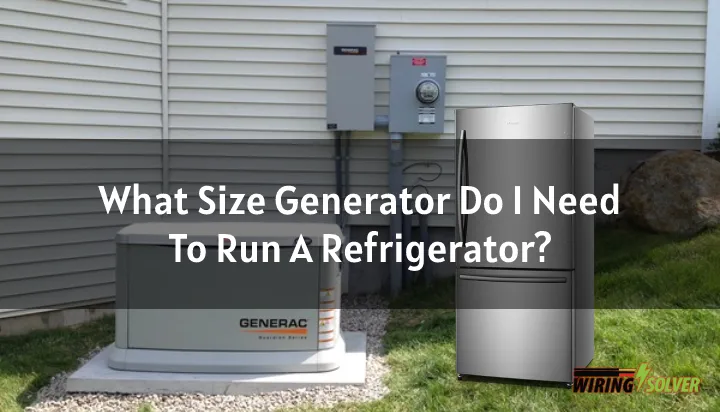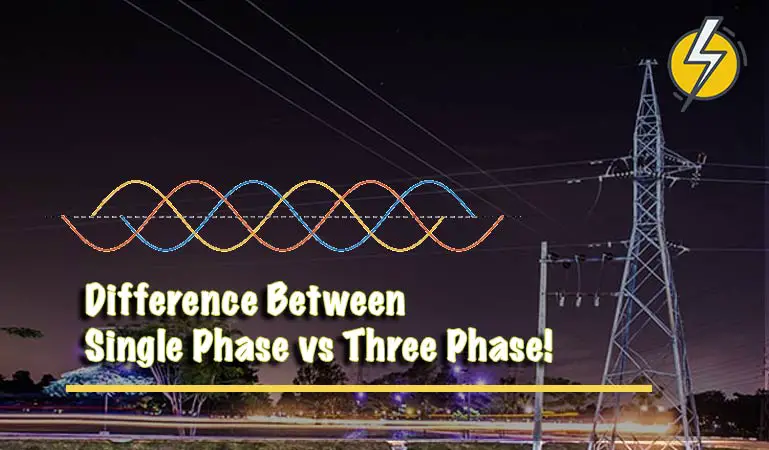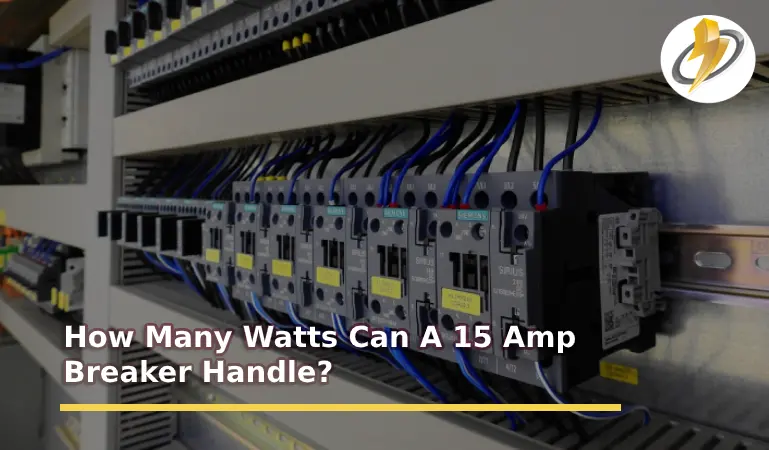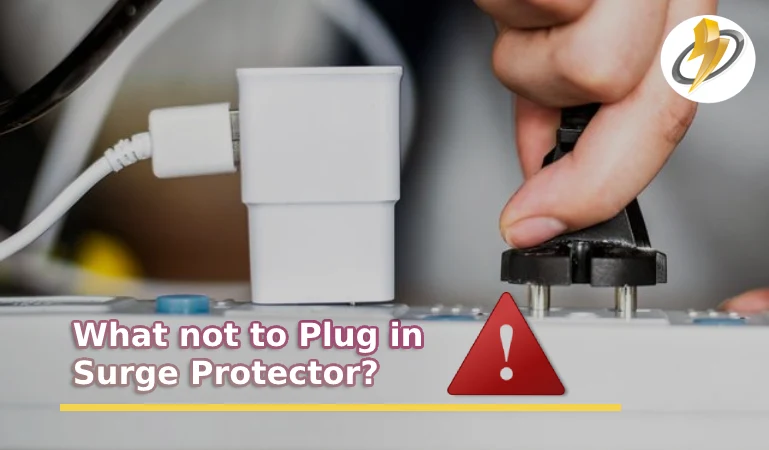An increasing number of households are opting to buy a generator to ensure they have a reliable power source. But when it comes to powering larger appliances, such as a refrigerator, the size of the generator you choose is critical.
The answer is a bit critical. As there is no one singular answer for the question. The size of the generator will completely depend on the rating of the refrigerator that you wish to use. The greater the rating of the refrigerator, the greater the size of the generator.
In this article, we will be looking at what size generator you need to run a refrigerator, and the various factors to consider when making your choice.

Generator Size Needed to Run a Refrigerator:
To understand what size generator you need for your fridge, you have to do a few things and keep some things in mind. So, let’s check them out below:
Check the Wattage Rating
The very first thing you should do when you decide to buy a generator for your refrigerator is check the ratings on your refrigerator.
If you still have the sticker or label on the refrigerator, note what wattage rating it has, and if you have thrown it out, you could simply look up the model online to know the wattage ratings.
Another place where you are very likely to find the ratings is the user manual of the refrigerator
Calculating the Wattage Rating
Oftentimes the wattage rating isn’t directly written on the sticker or label. Instead, they write the voltage and amperage ratings.
This means you will have to do simple math to know what the wattage rating of the refrigerator is. All you have to do is simply multiply the voltage rating with the amperage rating, and then there you have it, the wattage rating.
For example, your refrigerator at home is labeled with a 6.5 A current rating, and it plugs into a regular 120 V A.C. outlet. So, the average running wattage will be 6.5 A X 120 v, which is 780 Watts.
What Size Generator is Needed to Run Window Unit and Fridge?
The 5000 BTU air conditioner is a very popular type of air conditioner, so let’s take it as an example. So, how big of a generator would you need to run a 5000 BTU air conditioner?
The starting wattage of this type of air conditioner is around 625 Watts, and then after a few seconds, it drops down to the continuous running watts, which are approximately 500 Watts.
Now, if you were wondering what size generator do I need to run my whole house, then the answer will be that it varies. The starting and running wattage of that generator must be greater than the sum of the starting and running wattages of all the appliances in your house.
Therefore, you will need a much larger generator to power your whole house than the generator you would need to just your refrigerator.
How Can I Calculate the Size of Generator Needed?
To determine the size of generator you need to run a refrigerator, you’ll first need to know the power requirements of the appliance.
Most refrigerators list their power consumption in either watts or amps on the manufacturer’s label, usually located on the back of the unit or in the manual.
Once you have the power consumption information, you’ll want to consider the starting power requirements, also known as peak or surge watts, which are typically higher than the running watts.
The starting power is the amount of power required to start the compressor and get the refrigeration process going. This value is usually listed on the manufacturer’s label as well, and can be anywhere from 2 to 3 times the running watts.
Next, add up the total watts needed to run all the appliances you want to power with your generator, including the refrigerator. This number is known as the total load.
Additionally, consider the efficiency of the generator and factor in a 20% safety margin to account for any fluctuations in power consumption.
A generator’s rated power output should be slightly higher than your total load calculation to ensure that it can handle the appliances you want to power.
For example,
if your refrigerator uses 600 watts and has a starting power requirement of 1200 watts, and you want to power two lights (100 watts each) and a television (200 watts), your total load calculation would be:
600 + 100 + 100 + 200 + 20% = 1020 watts.
In this case, a generator with a rated power output of at least 1200 watts would be sufficient.
It’s important to choose a generator that is appropriately sized for your needs to ensure that it can power all the appliances you want to run, without overloading or damaging the generator or the appliances.
If you’re in doubt about what size generator you need, it’s always best to consult with a professional or the manufacturer of your appliances.
Summary
Ultimately, selecting the correct size generator to power your refrigerator is not a simple task. You must consider a variety of factors, such as the size of your fridge, the wattage rating, and the type of fuel source.
Doing your research and planning ahead can help you make an informed choice and ensure you have the necessary power source to keep your refrigerator running.





